Leading change
Afrikaans translation of iconic African novel
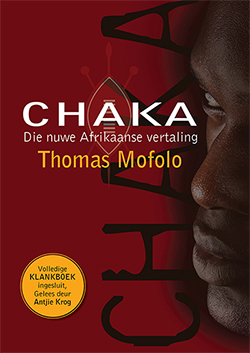 Unisa Press has launched the Afrikaans translation of Thomas Mofolo’s Chaka, the classic African historical novel. Translated by Prof Chris Swanepoel, a research fellow in the Department of African Languages in the College of Human Sciences, the novel was originally written in Sesotho and published in 1925 by the Morija Sesuto Book Depot in Lesotho. The book is a highly regarded classic African literary work on the legend of the Zulu king, UShaka.
Unisa Press has launched the Afrikaans translation of Thomas Mofolo’s Chaka, the classic African historical novel. Translated by Prof Chris Swanepoel, a research fellow in the Department of African Languages in the College of Human Sciences, the novel was originally written in Sesotho and published in 1925 by the Morija Sesuto Book Depot in Lesotho. The book is a highly regarded classic African literary work on the legend of the Zulu king, UShaka.
This work was among the top five on a list of the 100 most influential texts ever published within Africa during the previous century. It weaves a creative tale which is not strictly bound by historical facts and where the Sesotho and isiZulu cultures are interwoven. The story of Chaka is written in highly poetic and yet accessible language and is a gripping tale of political power, high drama, action, bloodshed, love and deep sorrow. Readers from all walks of life will enjoy this text, which is suitable for reading by mother-tongue speakers, students from high school to university as well as the general reading public interested in the literary traditions and works originally published in the African languages of Southern Africa.
Swanepoel, who is also a former Unisa Vice-Principal: Academic and Research, says while studying Sesotho at the University of the Free State in the early 1960s, he was introduced to the literary works of Thomas Mofolo, from which there developed an ever growing admiration for his Chaka, a complex novel in beautiful Sesotho. “I soon wished that fellow speakers and readers of Afrikaans literature could share this admiration for Mofolo, the depth of his creative mind and the nobility of his prose, albeit through translation.”
A little more than a decade later this wish was fulfilled with the publication of Swanepoel’s first translation of the classic in 1974. In a sense this translation was an effort to making good a debt of honour, since the English translation appeared in 1931 already, the French in 1940, an abridged German one in 1954, and the Italian in 1959.
“The response of the Afrikaans press was encouraging, since the translation coincided with the groundswell for change in the country among Afrikaans authors starting in the 1960s. However, it is common knowledge that literary translations are never fully completed; they go out of print, they become outdated; new insights and understandings emerge, and therefore they regularly require revision.”
He says after 40 years it was imperative that a new translation should not only become available in bookstores and at book festivals again, but that it should profoundly be brought in line with the sea of changes South African society experienced since the early 1990s in all walks of life.
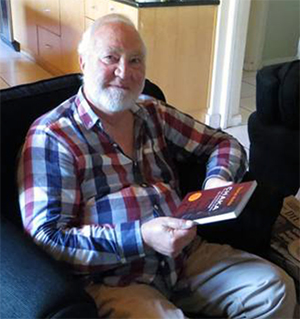
Prof Chris Swanepoel, a research fellow in the Department of African Languages in the College of Human Sciences, has translated Thomas Mofolo’s Chaka into Afrikaans.
Building a new multilingual nation
He adds that while there is considerable pressure on Afrikaans as language of tuition in the higher education sector, there is no constitutional, linguistic or cultural impediment on its existence, or curtailment of its further growth. “An entirely new and diverse generation of users is emerging, totally committed to contribute to national reconciliation and the promotion of intercultural exchange and subsequent mutual enrichment.
Literary translation is a key driver of that much needed intercultural exchange and literary enrichment, he continues. “Here we have an opportunity to follow a fascinating dialogue between official language Afrikaans receiving from official language Sesotho a classic gem that is internationally regarded as among the best of the latter’s cultural exports
“As language that developed on African soil, Afrikaans is proudly receiving from a neighbour in the rainbow of South African languages, Sesotho. In this sense I am confident that the new translation stands a good chance of contributing to what comes to us as a constitutional challenge: building a new multilingual nation. And mutual transfer of this nature between the languages of the land is perhaps an enterprise worth embracing.”
Also adding his thoughts is Prof Andries Oliphant from the Department of Afrikaans and Theory of Literature, who says: “This is a key text that should constantly circulate in all the languages of South Africa.”
Mesmerising audio book
The Chaka Afrikaans translation, Die nuwe Afrikaanse vertaling, is accompanied by an audio book by Prof Antjie Krog (which will also be sold separately and online). The CD contains a full voice recording of the text, which brings the story to life in the imagination of the listener. Krog is one of South Africa’s most beloved and respected poets, and has a lively interest in the work of Thomas Mofolo. She is a renowned poet, academic, and writer attached to the Arts faculty of the University of the Western Cape. She has won major awards in almost all the genres she has worked in poetry, journalism, nonfiction and translation. Her work has been translated into English, Dutch, French, Italian, Spanish, Swedish and Serbian.
The sound files were edited and finalised for production at Unisa’s Sound and Video Unit by Vellie Sibuyi.
Unisa Flame Series
The Chaka translation and audio CD fall naturally within the Unisa Flame Series in terms of its scholarly and artistic merit and its multidisciplinary scope. The intercultural contexts of the isiZulu and Sesotho cultures come to the fore in the creative re-telling of a classic Zulu legend, cast into the Sesotho language and cultural practices.
Positioned within the Research and Innovation Portfolio at Unisa, the Unisa Flame Series was sparked by the need to create a space in which to publish ground-breaking works of high merit and originality which move beyond the scope of the traditional. Works that point to new expressive pathways, new ways of making sense and new kinds of interactive explanation are published here.
As original creative and analytical materials, books in the series transcend the boundaries of subject field and medium, and are typically hard to package as either academic or popular. The aim of the series is thus to open up a space at Unisa Press for such new forms of expression, which defy classical academic categories of publishing.
Within this paradigm of unlocking the future, which draws on Africa’s scrambled periodisation in which premodernity, modernity and postmodernity cohabit, the series draws in works that are cutting-edge and which cater for a new generation of digital natives as well as for an existing print-based readership. The series editors are Prof Keyan Tomaselli, professor emeritus and a fellow of the University of KwaZulu-Natal, and Prof Alan Weinberg, Unisa’s first A-rated humanities researcher and another former CHS scholar who remains active in his retirement.
*Compiled by Rivonia Naidu-Hoffmeester
Publish date: 2017/04/19


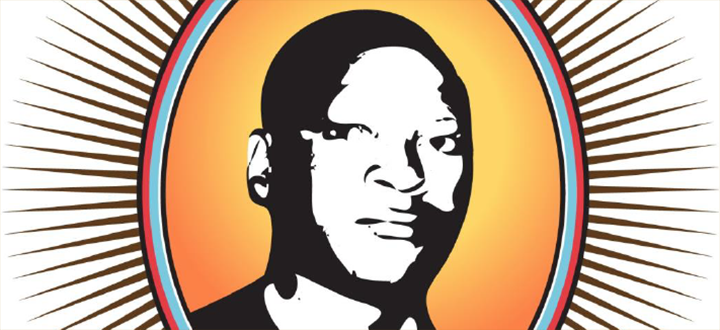 Unisa honours Dr OK Matsepe's enduring legacy
Unisa honours Dr OK Matsepe's enduring legacy
 Great strides towards concretising Unisa-PMC partnership
Great strides towards concretising Unisa-PMC partnership
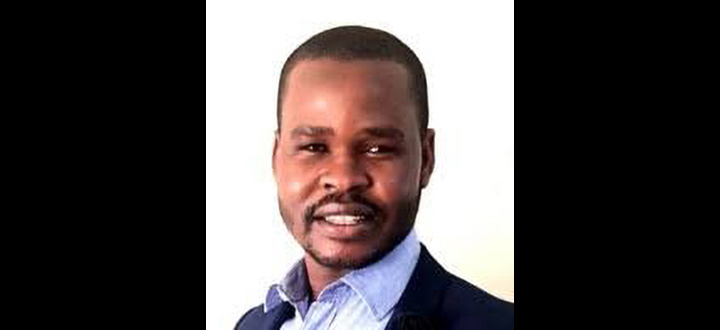 Mental health among men in the workplace needs more attention
Mental health among men in the workplace needs more attention
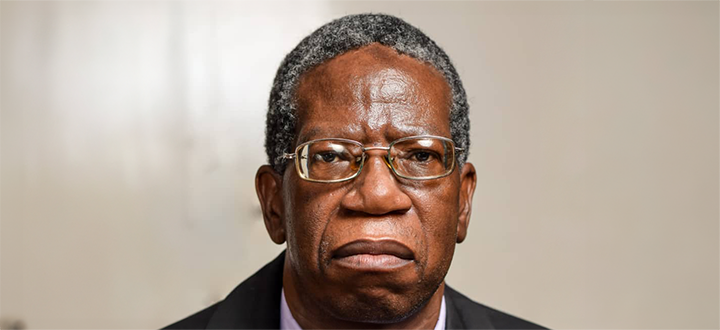 "I owe everything to Unisa and my late supervisor's priceless mentoring"
"I owe everything to Unisa and my late supervisor's priceless mentoring"
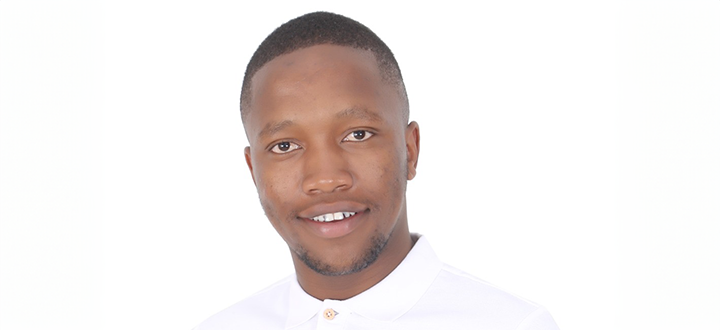 Majikijela - a queer scholar raising homosexuality awareness through his work
Majikijela - a queer scholar raising homosexuality awareness through his work